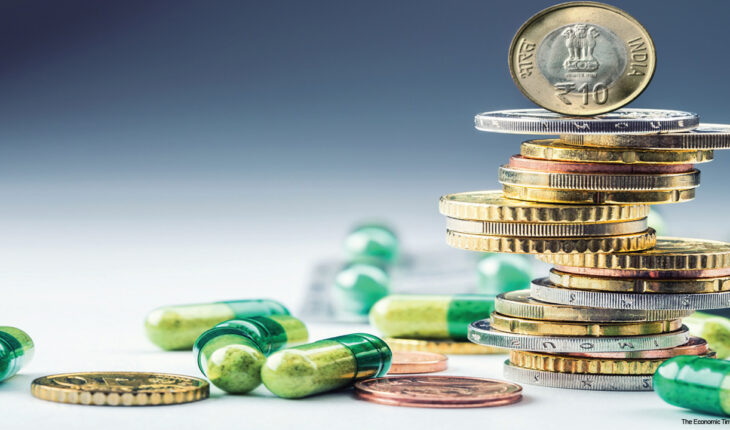
Dr. Anil Kumar Angrish

Mahek Joshi
In 2018, Nassim NicholasTaleb came up with a non-fiction book, “Skin in the Game: Hidden Asymmetries in Daily Life” in which he hypothesized that when taking a major decision, a shared risk is necessary for “fairness, commercial efficiency, and risk management”. One cannot make profits and transfer the risks to others, and therefore by forcing ‘skin in the game’ corrects that asymmetry. Any movement in the promoter holding of a company, decrease or increase, is viewed critically as it affects ‘skin in the game’ of promoters. In H1 of 2024, promoters of 37 NSE 500 companies sold stake amounting to Rs. 87,000 crore that marked the highest level in the past five years. It was mainly attributed to rich valuations that offered opportunity to promoters for dilution of stake without losing control. Reasons for the stake sale included use of the funds for business expansion, or for debt repayment, and in certain cases, fulfilment of requirement regarding minimum public shareholding.
Higher promoter stake can lead to their dominance that can potentially lead to conflict of interest thereby sidelining minority shareholders. To address various concerns of shareholders, the Securities and Exchange Board of India (SEBI) has implemented various policy measures which are aimed at protecting minority shareholders and ensuring market liquidity. These measures include disclosure requirements for promoters under the SEBI regulations mainly the SEBI (Issue of Capital and Disclosure Requirements) Regulations, 2018 (‘ICDR’), the SEBI (Substantial Acquisition of Shares and Takeover Regulations), 2011 (‘SAST’), the SEBI (Prohibition of Insider Trading Regulations), 2015 (‘PIT’), and the SEBI (Listing Obligations and Disclosure Requirements) Regulations, 2015 (‘LODR’).
Average promoter holding in top 100 listed pharmaceutical firms as per market capitalization has remained relatively stable, fluctuating slightly between 55.38% and 56.40% over seven years’ period from 2017 to 2023. This suggests that family-owned or promoter-led businesses continue to dominate the pharmaceutical sector in India, reflecting sustained confidence and control by promoters. In 41 companies among top 100 listed pharmaceutical companies in India, promoters’ stake declined over a period of six years. In case of 14 pharmaceutical companies as listed in Table 1, decrease in promoter holding was more than 10% over a period of six years from 2017 to 2023.
Table 1:- Decrease in Promoter Holding in Pharmaceutical Companies
| Company | Promoter Holding (%) | Percentage Change | |
| March 2017 | March 2023 | ||
| Cipla | 37.48 | 33.55 | -10.49% |
| Alkem Labs | 66.97 | 57.16 | -14.65% |
| Ajanta Pharma | 73.78 | 66.11 | -10.40% |
| Laurus Labs | 30.64 | 27.20 | -11.23% |
| Granules India | 53.45 | 42.02 | -21.38% |
| Wockhardt | 74.25 | 59.31 | -20.12% |
| Neuland Lab | 51.68 | 36.14 | -30.07% |
| Advanced Enzymes | 70.10 | 49.88 | -28.84% |
| Valiant Organic | 52.00 | 38.41 | -26.13% |
| Bliss GVS Pharma | 60.16 | 35.04 | -41.76% |
| Ind-Swift Labs | 55.46 | 42.01 | -24.25% |
| Wanbury | 56.11 | 39.84 | -29.00% |
| Fredun Pharma | 74.44 | 50.15 | -32.63% |
| Take Solutions | 63.14 | 53.41 | -15.41% |
Source: Compiled from Annual Reports of respective companies
High valuation was not the only reason behind stake sale by promoters of pharmaceutical companies. There were multiple reasons behind decrease in promoter stake in these companies. For example, Cipla is a prominent pharmaceutical company in which promoter stake declined over a period of six years, i.e., from 2017 to 2023, and aggregate decline was 10.49%. Most recently, in May 2024, members of the Hamied family, sold 2.53 % shares of the company in a block deal to investors. In regulatory filings, it was stated that the proceeds worth Rs. 2,637 crore was to be used for creating liquidity for specific needs including philanthropy. By May 2024, promoter stake went down to 31.67 %.
In certain cases, promoters sold their shares to finance their respective private businesses and repay loans taken against pledged shares of the company, e.g., in 2022, promoters of Ajanta Pharma (Aayush Agrawal Trust and Ravi Agrawal Trust) sold 4.3% of their shares in open market transactions. The share sale also provided liquidity to the promoters, with proceeds intended for personal use. In a similar case, Dr. Satyanarayana Chava, and Nagarani Chava of Laurus Labs sold a part of their holding which was 1.3% of the company’s paid-up capital. A significant part of the proceeds was utilized to release the pledge on their equity shares. In case of Laurus Labs, one major reason was reclassification of promoters. Dr. Srihari Raju Kalidindi and his immediate relatives were reclassified from the ‘Promoter category’ to the ‘Public category’.
Krishna Prasad Chigurupati, promoter of Granules India sold a 3.09% stake in Granules India for Rs. 304 crore in May 2024. Stake sale aimed to address personal financial obligations including the clearance of personal debt, to release existing pledges on the promoter’s holding in the company, thereby enhancing liquidity. Lastly, it sought to create a source of personal liquidity which provides flexibility for future financial endeavours or investments.
Equity issue through a Qualified Institutional Placement (QIP) led to decline in the promoter holding in Neuland Laboratories as the company issued additional equity shares to institutional investors, thereby diluting the stake held by the promoters. Dr. Davuluri Ramamohan Rao sold equity shares on December 8, 2023 that represented a 3.12% stake through open market transactions. The proceeds from the sale were intended for personal purposes.
In Valiant Organic, merger with another company – Abhilasha TexChem resulted in issuance of shares to the shareholders of Abhilasha TexChem. This led to adjustments in promoter holdings as part of the consolidation process. Valiant Organic also absorbed Amarjyot Chemical leading to the issuance of equity shares as well as Optionally Convertible Preference Shares (OCPs). Post merger, Valiant Organic converted OCPs into equity shares, further adjusting the capital structure and potentially impacting promoter holdings. Gogri family, promoters of Valiant Organic made strategic investments such as acquiring a stake in Mitsu Chem which might have influenced their overall shareholding strategy.
For Bliss GVS Pharma, promoter holding had significant decline. It was attributed to re-classification/removal of shareholding of eleven promoters on December 15, 2020 from “Promoter and Promoter Group Category” to “Public Category” as per Regulation 31A of SEBI (Listing Obligations and Disclosure Requirements) Regulations, 2015.
In Fredun Pharma, equity shares were issued on a preferential basis in the financial year 2017-18. This led to a dilution of promoter holding as a significant portion of the shares were allocated to non-promoter entities. Another issuance on August 1, 2018 further reduced promoter holding.
In 27 pharmaceutical companies, percentage decline in promoters’ stake was less than 10% over the period of six years from 2017 to 2023. Decrease in promoting holing was close to 10% for Strides Pharma, Marksans Pharma, and Shilpa Medicare. Decrease in promoter holding was less than 1 per cent for companies like Divi’s Labs, DRL, Aurobindo Pharma, Indoco Remedies, Amrutanjan Health Care, Hester Bioscience, Jagsonpal Pharma, Bharat Parenterals, and ZIM Labs.
Table 2:- Pharmaceutical Companies with Single Digit decline in Promoter Holding
| Company | Promoter Holding (%) | Percentage Change | |
| March 2017 | March 2023 | ||
| Divi’s Labs | 52.07 | 51.94 | -0.25% |
| Dr. Reddy’s Labs | 26.79 | 26.69 | -0.37% |
| Aurobindo Pharma | 51.87 | 51.84 | -0.06% |
| J. B. Chemicals | 55.76 | 53.93 | -3.28% |
| Alembic Pharma | 72.68 | 69.61 | -4.22% |
| Natco | 51.24 | 48.84 | -4.68% |
| Eris Lifesciences | 55.93* | 52.86 | -5.49% |
| Jubilant Pharmova | 54.02 | 50.67 | -6.20% |
| Strides Pharma | 31.09 | 28.28 | -9.04% |
| Marksans Pharma | 48.25 | 43.85 | -9.12% |
| Shilpa Medicare | 54.74 | 50.01 | -8.64% |
| Aarti Drugs | 62.46 | 59.57 | -4.63% |
| Indoco Remedies | 59.11 | 58.69 | -0.71% |
| Sequent Scientific | 57.24 | 52.79 | -7.77% |
| Novartis India | 73.40 | 70.68 | -3.71% |
| Dishman Carboge | 61.40* | 59.32 | -3.39% |
| Amrutanjan Health Care | 50.09 | 50.03 | -0.12% |
| SMS Pharma | 67.60 | 64.17 | -5.07% |
| Hester Bioscience | 54.07 | 53.73 | -0.63% |
| Anuh Pharma | 71.57 | 70.59 | -1.37% |
| Kopran | 44.95 | 44.29 | -1.47% |
| Jagsonpal Pharma | 69.17 | 68.72 | -0.65% |
| Bharat Parenterals | 74.42* | 73.84 | -0.78% |
| Panacea Biotec | 74.60 | 73.59 | -1.35% |
| Medicamen Biotech | 45.51 | 43.21 | -5.05% |
| ZIM Labs | 33.52** | 33.26 | -0.78% |
| Fermenta Biotech | 62.59 | 59.58 | -4.81% |
*March 2018 **March 2019
For these companies, underlying reasons behind the decrease in promoter holding differed. In J. B. Chemicals & Pharmaceuticals, TAU Investment, an investment arm of a prominent Private Equity firm – KKR & Co., acquired 53.78% stake from the founding Mody family in July 2020. Mody family retained 1.9% stake. In August 2024, Torrent Pharma was in news for considering options including dollar and local currency bonds to help fund a potential purchase of KKR & Co.’s stake in J.B. Chemicals & Pharmaceuticals Limited. In this case, existing promoters sold major chunk of their stake, and retained a small portion. Reclassification of promoters led to decrease in promoter stake.
Fermenta Biotech Limited merged with its parent company, DIL Limited in September 2019. For Fermenta Biotech, the impact on promoter holding involved a reconfiguration based on the share exchange or share swap ratio, recalculating ownership percentages to enhance financial flexibility and maximization of shareholder value.
Promoters’ stake in certain pharmaceutical companies also got reduced marginally due to conversion of shares issued under ESOP, conversion of debentures into shares in case of convertible debentures, sale of a small proportion of total holding due to higher valuation, among others. To ensure ‘Skin in the Game’ after the Initial Public Offer (IPO), various obligations are imposed on the promoters. A small change in the promoter holding does not affect ‘Skin in the Game’ in a significant manner but significant change in promoter holding definitely alters the situation.
Dr. Anil Kumar Angrish-Associate Professor (Finance and Accounting),Department of Pharmaceutical Management, NIPER S.A.S. Nagar (Mohali), Punjab
Mahek Joshi- MBA (Pharm.), Department of Pharmaceutical Management, NIPER S.A.S. Nagar (Mohali), Punjab
Disclaimer: Views are personal and do not represent the views of the Institute.






